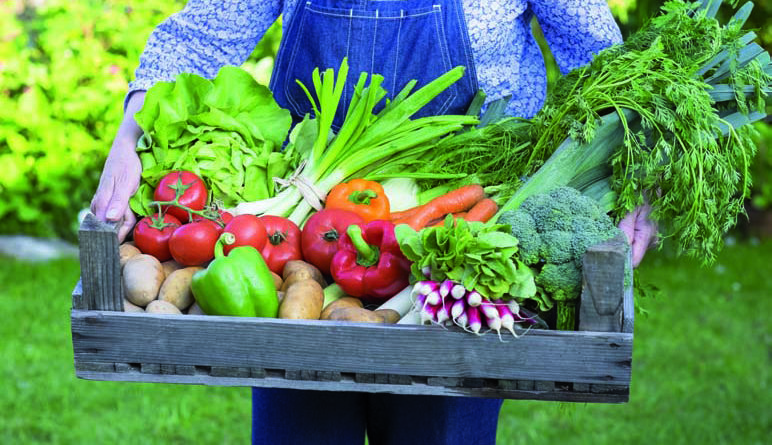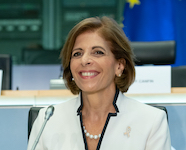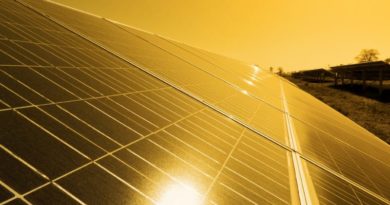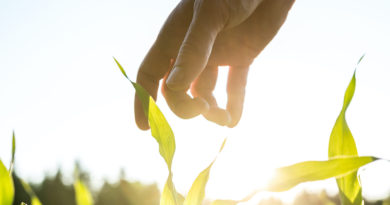
The food chain: paving the way to formulating a more sustainable, healthy and quality food policy
Less than a month ago, I was privileged to host the first of what will become our annual Farm to Fork Conference, gathering people from all the sectors involved in the food chain, from farmers to consumers. One issue clearly stood out from our discussions: people want change. We need to make the way we produce and consume our food more in tune with our health, our society and our planet.
These are indeed challenging times to embark on change. The COVID-19 pandemic has already had a major impact on our lives and will make us rethink our habits. What started out as healthcare crisis has turned into a global recession with ramifications for many sectors – including our farming sector and our food industry. This is coupled with the effects of climate change that are becoming ever-increasingly apparent, with annual droughts, floods, forest fires and new pests threatening our food system and our economy. It is more than ever clear that we must become more sustainable and resilient, and we have no time to waste. Business as usual is no longer an option.
The figures speak for themselves.
Agriculture is responsible for over 10% of the greenhouse gas emissions in the EU. We are being inefficient and unethical, wasting a fifth of the food we produce while 36 million EU citizens cannot afford a quality meal every day.
We are throwing food away while others starve. Our health care costs keep mounting as over 50% of the EU adult population is overweight whilst, globally, nearly 690 million people go hungry every night. Food production systems not only overburden the environment, they also fail to deliver on our social objectives. We need to change.
Farm to Fork will be a transformational moment for the Union. At the heart of achieving the Green Deal’s climate goals, it will contribute to a greener food production. It sets out a clear course with ambitious objectives and concrete targets to transform the EU food system. Indeed, by 2030, we want to see the use of pesticides and antimicrobials as well as nutrient losses reduced by 50% and the share of organic agriculture to reach 25%.
We will do this hand-in-hand with stakeholders, ensuring that all necessary support to achieve these ambitious targets is given. We will transform food production and make it sustainable. Apart from these targets the Farm to Fork Strategy also puts forward a list of 27 EU-level actions to spearhead our progress towards sustainable food systems. These range from food labelling, food waste animal welfare and promoting the global transition.
We know that our citizens prefer healthy and sustainably sourced food, and we will make sure that they have such options at all times, while also providing sufficient information to make the right food choices.
We will also provide clear and easily understandable information on the contents of their food: how it has been produced and how it affects the environment. A recent survey1 showed that European citizens expect a lot from all of us. Most of them believe that producers (farmers, fisheries etc.) and food manufacturers are key actors in making our food systems sustainable, above public authorities. In addition to this, Europeans also think that information on food sustainability should be compulsory on food labels, and that producers and food companies should themselves raise their products’ sustainability standards. This is a clear sign that this is change that comes from the bottom up – it has been demanded by our citizens.
Whilst transformational moments create costs – they should not create winners and losers. We need to support our farmers and fishers in this transition, and we intend to do so. No one will be left behind. Our ambition is to help primary producers strengthen their position in the supply chain and to capture a fair share of the benefit of sustainable production. To support the transition, policies such as the Common Agricultural Policy will continue to help, in particular, to offset the costs of changing practices. In addition, we will take actions to transfer costs from sustainable options to the less sustainable.
We know that investment will be necessary to encourage innovation and create sustainable food systems. We have made €10 billion available for research and innovation, to support and accelerate this transition, to develop biological pesticides, natural resources as well as the use of digital and nature-based solutions for food production.
Ultimately, we aim to be able to bank on our sustainability turning this cost into a competitive advantage for Europe’s farmers, fishers and food producers by sustainability leaders on the global stage.
As we work to overcome the COVID-19 crisis, I am convinced that with our Farm to Fork Strategy we have laid down the foundation for creating a better, stronger and fairer food system. For us to continue building on this foundation we need everyone’s commitment. We will all sink or swim together – there are no opt outs in climate change or planetary degradation. The cost of doing nothing in the way we produce, distribute and consume food will be significantly greater. The transition to sustainable food systems is our collective responsibility. As I witnessed a few weeks ago, the appetite for change is there and I would like as many as possible to join us at the table.




